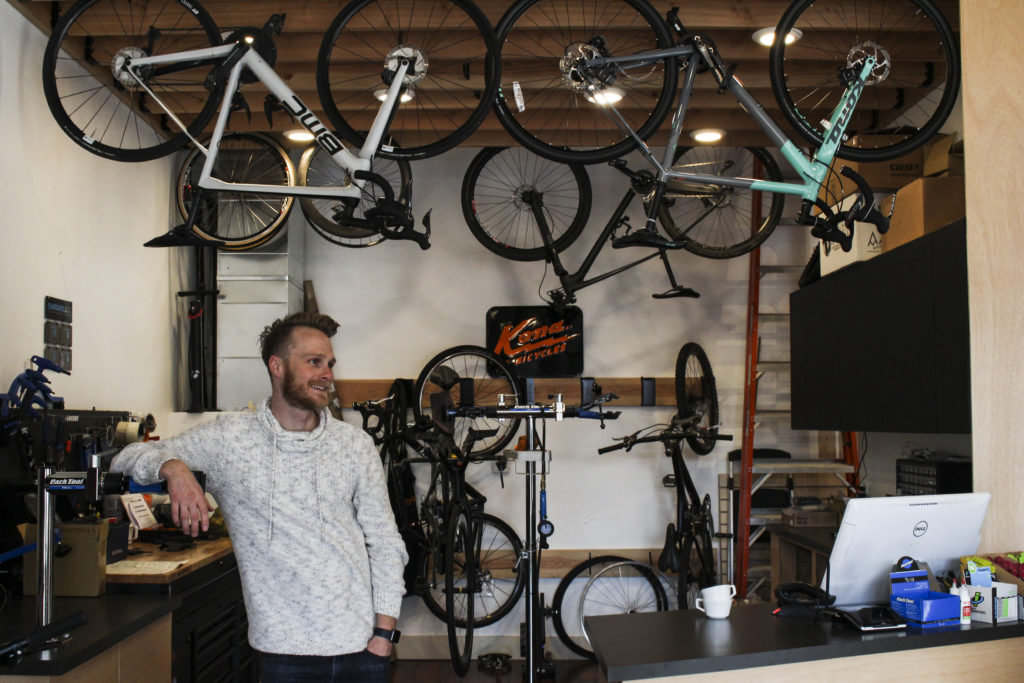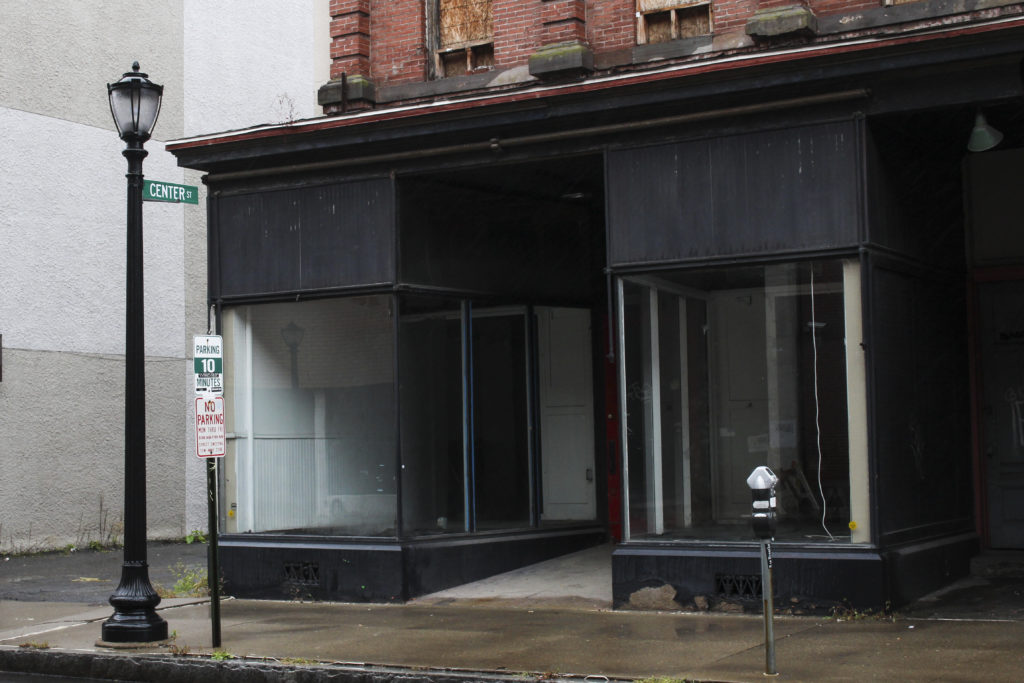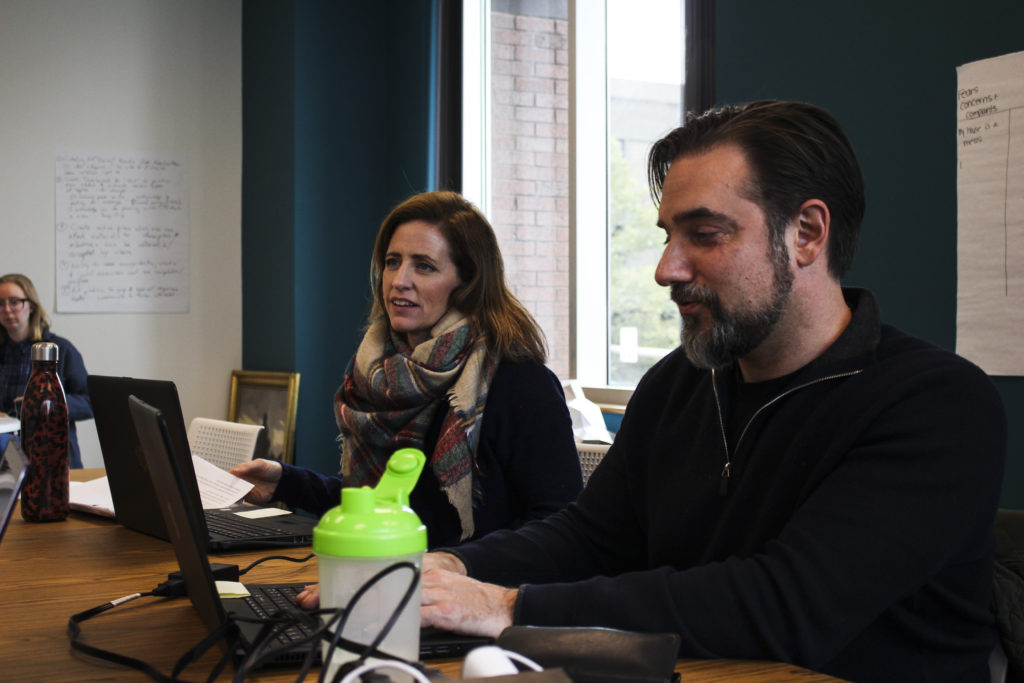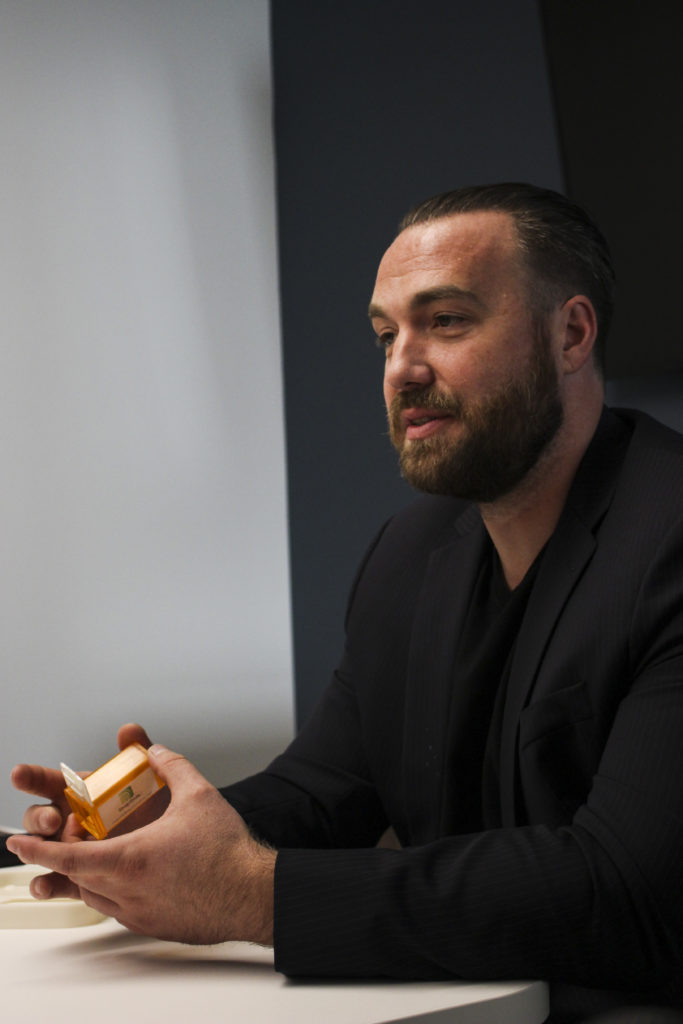
Crisp awnings and fresh stickers of carefully chosen calligraphy decorate clean windows. A block away from the courthouse resides Note, a perfume studio that lets customers make their own fragrances by using different essential oils. Nearby, Electric City Bakehouse on Penn Avenue sells artistic cupcakes.
Shouldering the new artisan shops, smudged windows, and dusty mannequins remind Saturday passer-byers of recent years when one shop after another had shut down at the city center. During the second half of the 20th century, Scranton changed from a booming coal mining and manufacturing hub to a city that nearly went bankrupt in 2012. It became difficult to find jobs. Young people moved to bigger cities for college and stayed away for work. In 80 years, the city lost nearly a half of its population, which is now at 77,600 inhabitants.

In the last three years, however, Scranton has been experiencing a small surge in the number of new businesses. In 2015 the population began to grow for the first time since the 1930s. The unemployment rate in Lackawanna County, which includes Scranton, went down from 6.8 percent in January 2015 to 4.3 percent in May 2018.
There is no record of the exact number of new establishments, but Amy Luyster, vice president at the Greater Scranton Chamber of Commerce and Aaron Whitney, a facilities manager for the Scranton Enterprise Center, both said that there is more interest in doing business in the area now than there was five years ago. The area has also seen a grown interest in e-commerce, which means distribution centers are being set up in Lackawanna County.
Patrick Sandone, 45, and Alison Skoff, 41, co-own a software company and are in the early stages of developing a new mobile app. They met through mutual friends in October 2017 when they were both spectators at a Scranton marathon. Skoff was running her own network marketing business and Sandone was planning on starting a new company. The two connected when they discovered that they were both interested in finding ways to help people develop themselves.

Their product, the Guide App, uses artificial intelligence to make personal development available for everyone. Their goal is to create a mobile app which offers users tools such as inspirational speeches or workshops for an affordable monthly fee.
For Sandone, this is his second software startup. In 2007, he founded Net Driven, an online service for the automotive aftermarket that provided a set of scalable tools that small car repair shops could use to create websites, online booking systems and search engine optimization.
He said he sold Net Driven on January of 2015 for an eight-figure amount. Before selling, though, Sandone said he made sure that the buyer would not take the company out of Scranton.
“It was important to me that they kept all the jobs here,” said Sandone. “These people were building it with me. I wanted them to be able to maintain their jobs.”

When he first started, Sandone had no venture capital. He used the money he made working as an investment banker on Wall Street to build Net Driven. Sandone hopes that Net Driven can be an example to other entrepreneurs.
“We had the first tech company that was a big success in that way that we had a hundred employees and we sold for a decent amount of money,” said Sandone. “I think that prior to that a lot of people had the mentality that you can’t do that here. To be able to break that paradigm and show other people that it is possible and inspire other entrepreneurs to try it was really cool.”
Sandone was among the Scrantonians that left the city to study and work. He earned his MBA from Columbia and lived in Paris, London, Boston, Atlanta and Philadelphia. Eventually, he decided to build his software companies in Scranton. “There are probably 500 other companies that do what I do in New York but there is only one in Scranton, and it is really meaningful to people because it gives people hope that they can do it too,” he said.
In 2016, Chason Sordoni and Rocky Batzel founded SnapSlide, a healthcare innovation company. Their main product, a new lid for pill bottles that must be pushed down and slid to open instead of twisting, which can be painful to some patients. The company is currently focused on obtaining a patent.

Sordoni, 38, originally from Scranton, believes that the city is a good spot for business because it is close to several metropolitan areas and highways. This will make distribution easier when they eventually start producing and selling the pill bottles.
Fellow start-up entrepreneur Aaron McNany’s business appeals to Scranton’s young and active demographic. McNany, 30, owns a hybrid bike shop cafe that boasts lots of natural light, fresh wooden shelves and high-end bikes on its walls.
After finishing military service in 2016 and returning to Scranton, McNany began selling biking equipment at bike races and cycling events. He saw a business opportunity.
“It is an inherently middle to upper class sport so you have a lot of executives and other people willing to put with money in it,” said McNany.
He set out to create marketing content that was easily shareable by riders, their families, their clubs and teams, local bike shops and race sponsors. Through these groups’ social media following, he reached bigger audiences.
McNany began building his company, Veloce, into an online community and a new marketing model. He opened a bike shop cafe in downtown Scranton to engage the Veloce community. “My lease here is inexpensive which gives me the ability to open up a downtown storefront,” he said. “In a bigger city like Philadelphia, it would probably cost me three times this much to be in the downtown area.”

McNany thinks that Scranton is perfect ground for an entrepreneur to experiment with new business ideas.
“In Scranton, I am able to be a big fish in a small pond,” he said. “I think what happened is that people graduated high school, maybe college, and then went to bigger cities. After a couple of years, they realized that this big fish in a small pond type of thing and suddenly Scranton is not a crappy place. It is like, oh I’ll go back to Scranton and start a life where I can actually buy a house and afford to start a business.”
Email the Author, Essi Lehto at eal520@nyu.edu